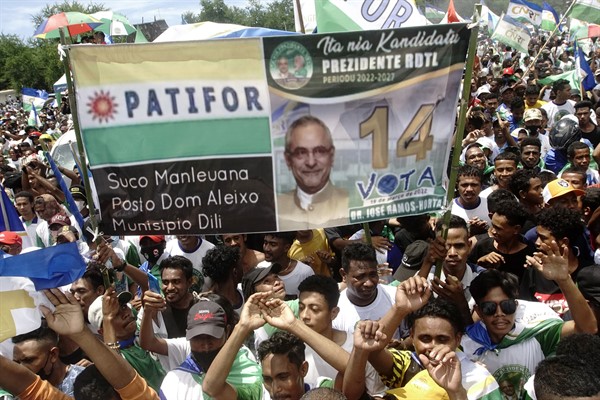In Timor-Leste’s recent presidential election in April, Jose Ramos-Horta—the former president, prime minister, foreign minister and resistance-era spokesman—won with a 62 percent majority. A political perennial, Horta’s success can largely be attributed to support from another former president, prime minister and resistance-era hero: Xanana Gusmao.
In the two decades since Timor-Leste’s independence, Gusmao’s endorsement has been decisive for all the country’s presidential candidates, including for Horta in his first successful run for the presidency in 2007; former military commander Jose Maria Vasconcelos, who won in 2012; and outgoing President Francisco “Lu-Olo” Guterres, who was elected in 2017, but with whom Gusmao subsequently had a falling-out. Moreover, Horta’s reelection bid in the 2012 presidential election failed in the first round when Gusmao chose to shift his support to Vasconcelos, popularly known as Taur Matan Ruak.
The decisive impact of Gusmao’s support makes him something of a kingmaker, though his motives for whom to endorse are believed to be driven by his own political ambitions and plans. This year was no different, with his support of Horta widely understood as a bid to change the current coalition government in parliament, which is led by the center-left Fretilin party. That, in turn, has implications for Timor-Leste’s economic, diplomatic and strategic future.

